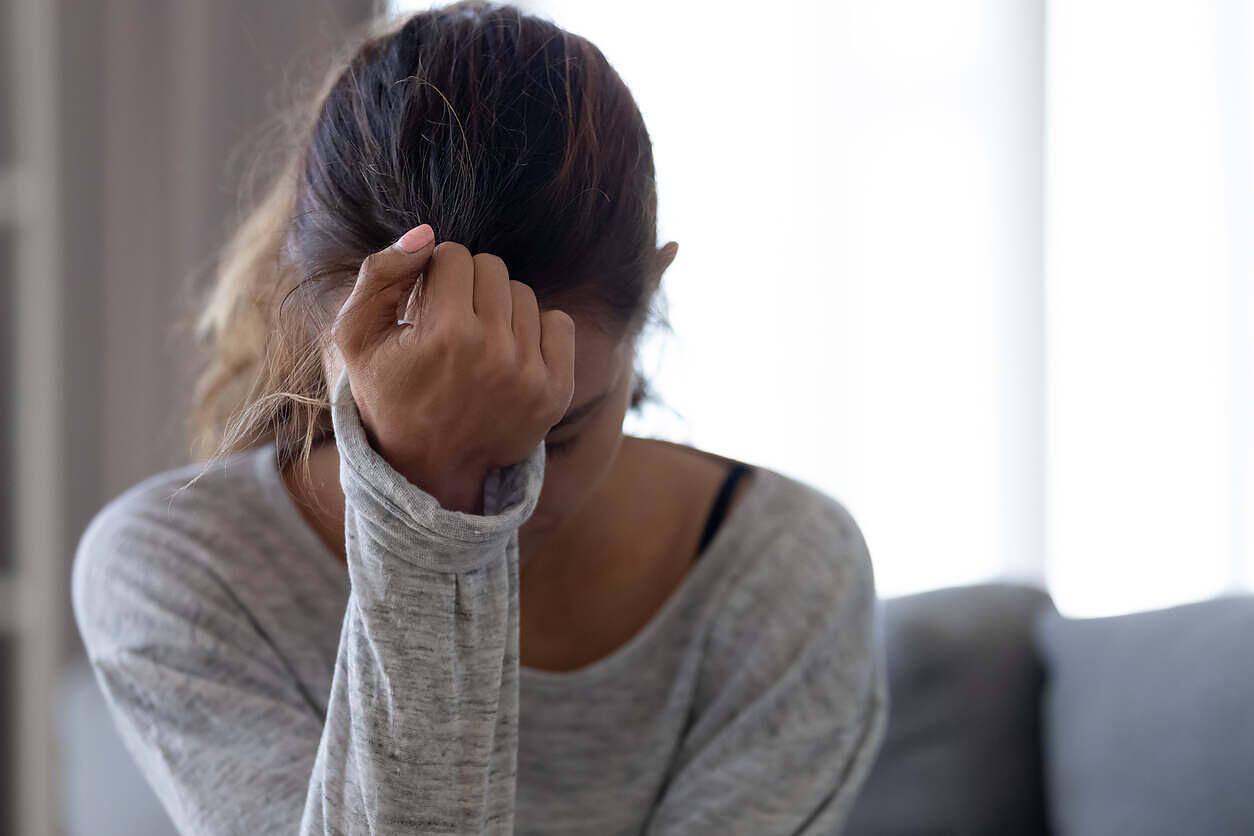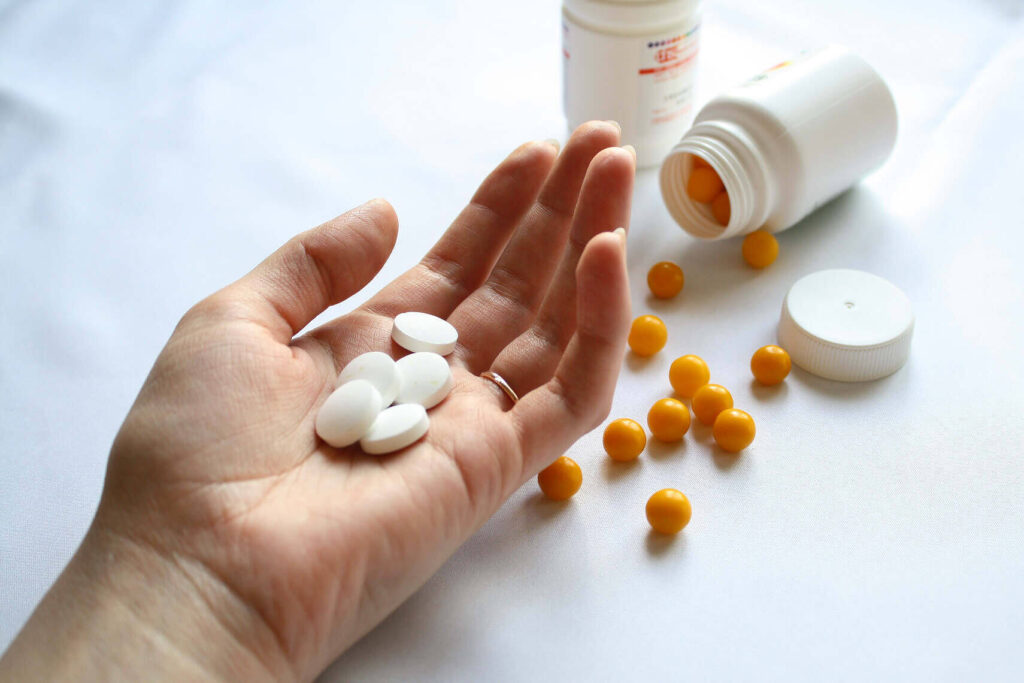Librium is one of the most common alcohol detox medications in the UK and is used to reduce withdrawal symptoms, rest and recovery.
Learn more about Librium: how it works, how to use it and what the potential side effects are.
How Does Alcohol Detox Work?
Alcohol detox is a process that is used to help individuals reduce their drinking or stop drinking completely.
If a person is using alcohol or abusing alcohol, they should get help by contacting a medical professional or an addiction centre. They can help a person break free from alcohol addiction.
Detox is a natural process that takes place in the body when you stop drinking. It is triggered by a sudden reduction in the amount of alcohol in your bloodstream and is the body’s natural way of returning to a balanced state.
Based on the quantity of alcohol you have consumed and the length of addiction, when you stop drinking, your body will go through three distinct phases of detox.
Acute Withdrawal
The first phase of detox is known as ‘acute withdrawal’. This is the time period when the various symptoms of alcohol withdrawal begin to take effect.
The primary symptoms you will experience will be a result of the brain attempting to compensate for the sudden lack of alcohol. It does this by creating a chemical imbalance that helps to regulate your mood and general state of mind.
If you are experiencing acute withdrawal, then you may experience:
- Increased anxiety, sleeplessness, and restlessness
- Increased sweating, shakiness, and tremulousness
- Increased heart rate and blood pressure
- Sweating, nausea, and vomiting
- Irritability, frustration, and impatience
It is important to remember that this is all a perfectly normal part of the detox process. Your body is working to create a chemical equilibrium, so it is of primary importance is to give it time to do so.
You can shorten the detox period by using Librium medication to help your body achieve a more balanced state faster.
Hangover Phase
The second phase of alcohol detox is often known as the ‘hangover’ phase. This refers to the time period after the acute withdrawal symptoms have passed but before the body has fully adjusted to the lack of alcohol.
This is a period of time that can last anywhere from a few hours to five days.
While the length of the hangover period may differ from person to person, you can expect to experience at least one of these symptoms:
- Headache
- Nausea
- Dizziness
During this period, the alcohol in your system will continue to decline, leading to an increased sense of well-being. This phase of alcohol detox is often characterized by a slow sense of well-being, which can lead to feelings of euphoria or anxiety.
As alcohol continues to dissipate from your body, you may find that your sense of anxiety begins to diminish. Your mood may swing back and forth for a few days, but as time goes on, your mood will settle.
If you are feeling particularly anxious, you may wish to have Librium for detox on hand to help reduce your symptoms. Medication is available in oral and injectable forms, which both work to assist the brain’s natural production of GABA, a chemical messenger that reduces anxiety and promotes relaxation.
Long-Term Symptoms
The final phase of alcohol detox is known as the ‘long-term’ phase. This phase is particularly important because it is the time period in which you will begin to make lasting changes to your lifestyle.
The most important fact for you to remember is that alcohol withdrawal will not last forever. As you move through the long-term phase, it may be helpful to surround yourself with supportive friends and family members.
Symptoms of Alcohol Withdrawal

There are a large number of symptoms that you can experience while you go through the process of alcohol detox. These symptoms and their intensity can vary significantly from person to person.
Intense Cravings
The most common symptom of alcohol withdrawal is the intense craving for alcohol. It is important to resist these cravings.
Even if you have been drinking heavily for years, giving in to these cravings will only delay the detox process. While it may seem impossible to resist these cravings, there are a number of techniques that you can use to help you do so.
If you are using Librium, alcohol withdrawal cravings will be less severe and more manageable due to less physical side effects.
Insomnia
Insomnia is the most common symptom of alcohol withdrawal. You will likely find that you aren’t able to fall asleep until hours after you want to. Some people find that they can’t fall asleep at all.
Librium can help you with this symptom of withdrawal. It is a sedative medication and aids in getting restful sleep.
Anxiety
As your body eliminates alcohol, you may experience a significant increase in anxiety. The best way to combat this is to stay as active as possible. Even if you are feeling extremely anxious, try to refrain from retreating to your bed.
Restlessness
Restlessness is another symptom of alcohol withdrawal. You may find yourself going from the couch to the fridge and back numerous times, or you may find yourself pacing around your living room.
Insomnia and restlessness can often be reduced through exercise. Light jogging, walking, and other low-impact exercises can help you to feel calmer and more relaxed.
Tremors
You may notice that your hands are shaking throughout the alcohol detox process. These tremors are a normal part of withdrawal. You can also try to reduce your tremors by warming your hands on a hot cup of tea or coffee. This medication will help with tremors as it relaxes your body and reduces anxiety.
Sweating
You may find that you sweat significantly more than usual throughout the alcohol detox process. There is no way to stop these symptoms.
However, you can keep yourself from feeling too uncomfortable by taking a warm shower and changing your clothing often.
Medically Supervised Detox
If you are like most people, you don’t want to experience any of the symptoms of alcohol withdrawal. This is one of the many reasons that people choose a medically supervised alcohol detox.
There are clinics that can help you through the alcohol detox process. These clinics are equipped with experienced medical staff who can provide you with a safe, supervised detox program.
You can also talk to doctors about using alcohol detox medication in these programs.
What Is Librium?
Librium (chlordiazepoxide) is a drug used to treat anxiety and alcohol withdrawal symptoms. It belongs to a class of medications called benzodiazepines.
This medication has the same effects as other benzodiazepines, such as Xanax and Valium. It reduces the intensity of symptoms and helps you relax.
What Does It Do?
Librium can be used for alcohol withdrawal in much the same way that it is used for anxiety. It will help to reduce some of the most extreme symptoms of alcohol withdrawal. However, it will not eliminate all of these symptoms.
Using Librium
This medication can be taken in multiple ways. However, the most common medications are Librium capsules. These capsules can be swallowed whole or opened, and the contents can be added to food or drinks.
Librium is an effective treatment for alcohol withdrawal symptoms. In some cases, Librium detox is used in combination with other alcohol withdrawal medications. It may also be used alone.
Having an alcohol detox program can help make the withdrawal symptoms easier to survive.
How long does Librium take to work?
Librium has a number of benefits that make it the ideal treatment for alcohol withdrawal symptoms. First, it works very quickly. You can typically see an improvement in your symptoms almost immediately after taking the medication.
Librium also lasts longer than most other medications. Most people can take it once a day and experience relief for up to 20 hours. It is also very safe, offering a number of benefits.
For example, This medication allows you to experience the same benefits as other benzodiazepines but with fewer side effects. Because it is also relatively cheap and easy to obtain, you can use it without worrying about breaking the bank or travelling to multiple doctors for prescriptions.
How Does Librium Work?
Chlordiazepoxide works by affecting certain chemicals within the brain. These chemicals play a role in regulating the body’s response to stress and anxiety.
It also affects chemicals with effects on movement, such as muscle control. The medication works by binding to the benzodiazepine receptors in the brain.
This causes the brain to produce chemicals that relieve anxiety and produce a calming effect.
How To Take It?
The medication comes in tablet form. The typical dosage is 5 mg to 50 mg per day. You should take the medication as directed by your doctor.
Your dose for alcohol withdrawal will depend on the severity of your reaction to withdrawal. A doctor will determine your dosage. There are two stages doctors use to determine your dosage.
Stage One
During stage one, doctors focus on helping you cope with the intense symptoms that occur within the first 12 to 48 hours after you stop drinking. Your doctor will take a medical history and then prescribe an initial dose.
The first doses will help you cope with early symptoms caused by chemical imbalances in your brain. Your doctor will need to monitor you carefully because too much or too little can be damaging. Your dosage will be dependent on the severity of your symptoms.
Stage Two
Stage two will take you through the first week of detox. Slowly tapering off the amount of medication being used until it is no longer necessary to take any.
This tapering process typically begins after 48 hours. The amount you take will decrease by around 20 per cent every 24 hours.
What Are the Side Effects of Chlordiazepoxide for Alcohol Withdrawal?
If you experience any of the following side effects, contact your doctor as soon as possible:
- Abdominal or stomach pain
- Blurred vision
- Constipation
- Dizziness
- Drowsiness
- Dry mouth
- Headache
- Nausea
- Vomiting
- Tiredness
- Swelling
- Skin rash
- Irregular menstrual periods
These symptoms usually go away as your body adjusts to the medication. If they continue or become too bothersome, consult a doctor.
Can You Take Librium With Other Medications?
Librium is not safe to use with alcohol and other drugs. Do not use Librium medication unless your doctor approves.
Your doctor may need to adjust the dosage to match your other medications. Avoid combining Librium and alcohol.
Is Librium Addictive?
Yes. Librium is highly addictive, and the longer it is taken, the easier it is to become dependent.
How Does Librium Affect Pregnancy?
Librium may harm an unborn child. Do not take this medication if you are pregnant or nursing.
How Long Can You Take Librium?
You can take Librium for as long as your doctor recommends. However, you should remain under the supervision of your doctor while taking the drug.
When you stop the medication, you may experience withdrawal symptoms. These usually do not last more than one or two weeks. As your body adjusts, the symptoms go away.
Get the Help You Need Today
Detox and withdrawal can be challenging; however, you can ease some of the symptoms with the right plan.
Are you ready to get the help you need? Detox Plus UK is here to help you find the treatment you need.



